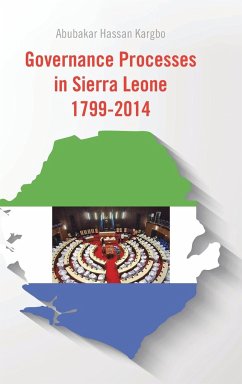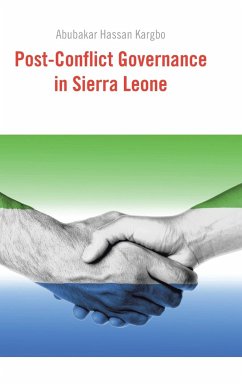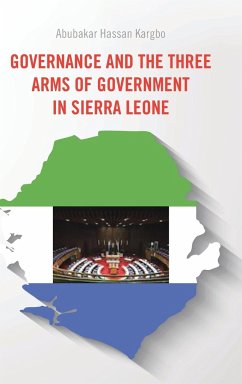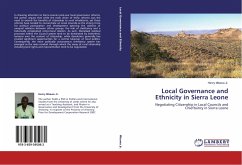Governance Processes in Sierra Leone from 1799?2014 is one of the governance series, which has been put together over the years to help not only postgraduate students at various universities in Sierra Leone but also people who are interested in knowing about the decentralisation process. It critically examines important issues in local government in Sierra Leone, starting from the colonial period and covering the post-independence era, the process of decentralisation of local governance in 2004, and the present. The book starts with the concept of good governance because of its importance in decentralisation and the various features that characterise it. It is followed by a literature review on decentralisation in the developing countries. What should be the proper role of the parliament of Sierra Leone, as the supreme organ of the state, has been given much prominence in this book. Parliament?s role to ensure that its activities are primarily focused on legislating pro-poor policies and that the creation of a solid foundation for socio-economic and political development through coalition building is highlighted. The book also contains the reintroduction of district officers into the decentralisation architecture in Sierra Leone. The significance of decentralisation, its achievements so far, its challenges, and the way forward is extensively examined.








